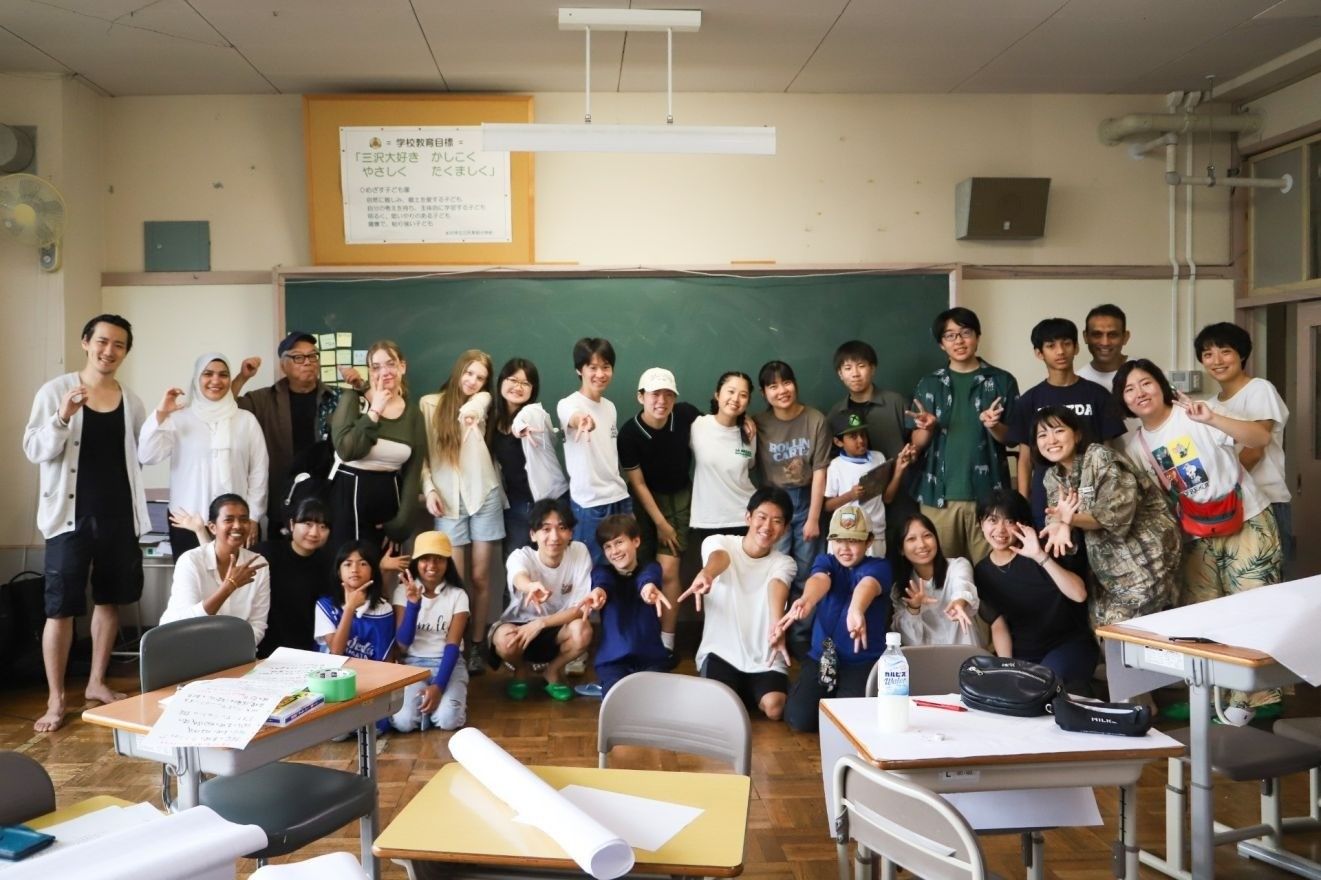We are engaged in Japanese language education support and social inclusion for children of refugee backgrounds.
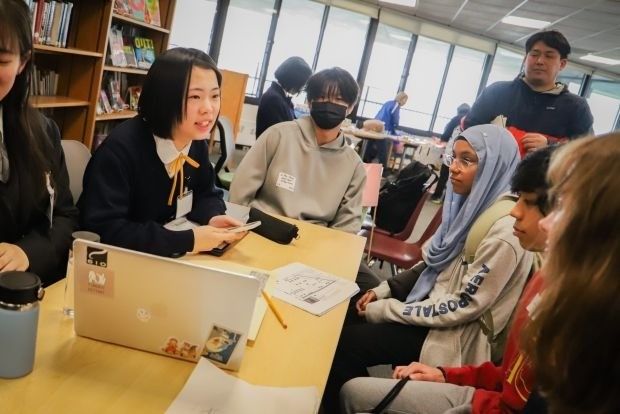
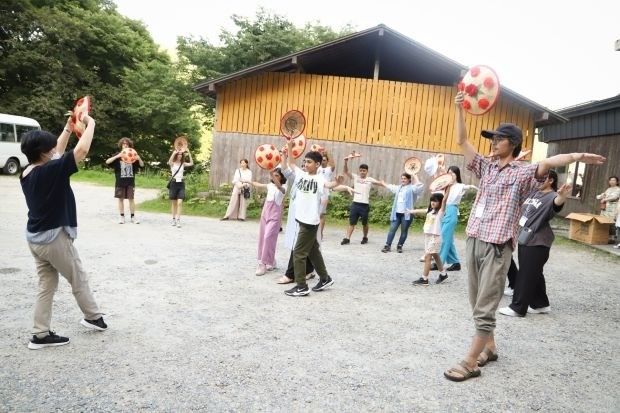
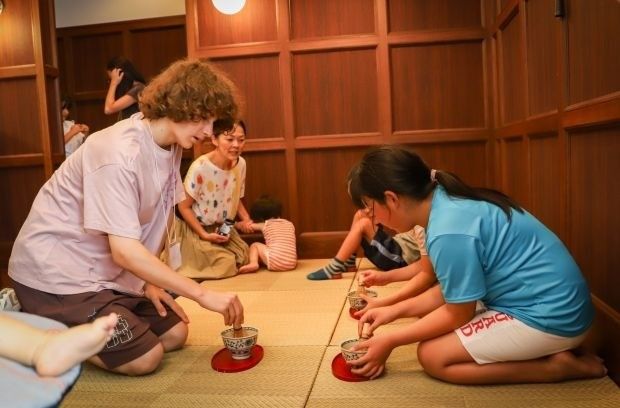
Challenges
Raise awareness in local communities regarding coexisting with refugees
Our committee focuses on the children’s generation of people with refugee backgrounds. They have limited access to global experiences, such as studying abroad, and their Japanese literacy tends to be insufficient. We cannot say they can freely pursue what they want in Japan. Furthermore, opportunities for direct interactions in the local community are scarce, making it difficult to build mutual understanding.
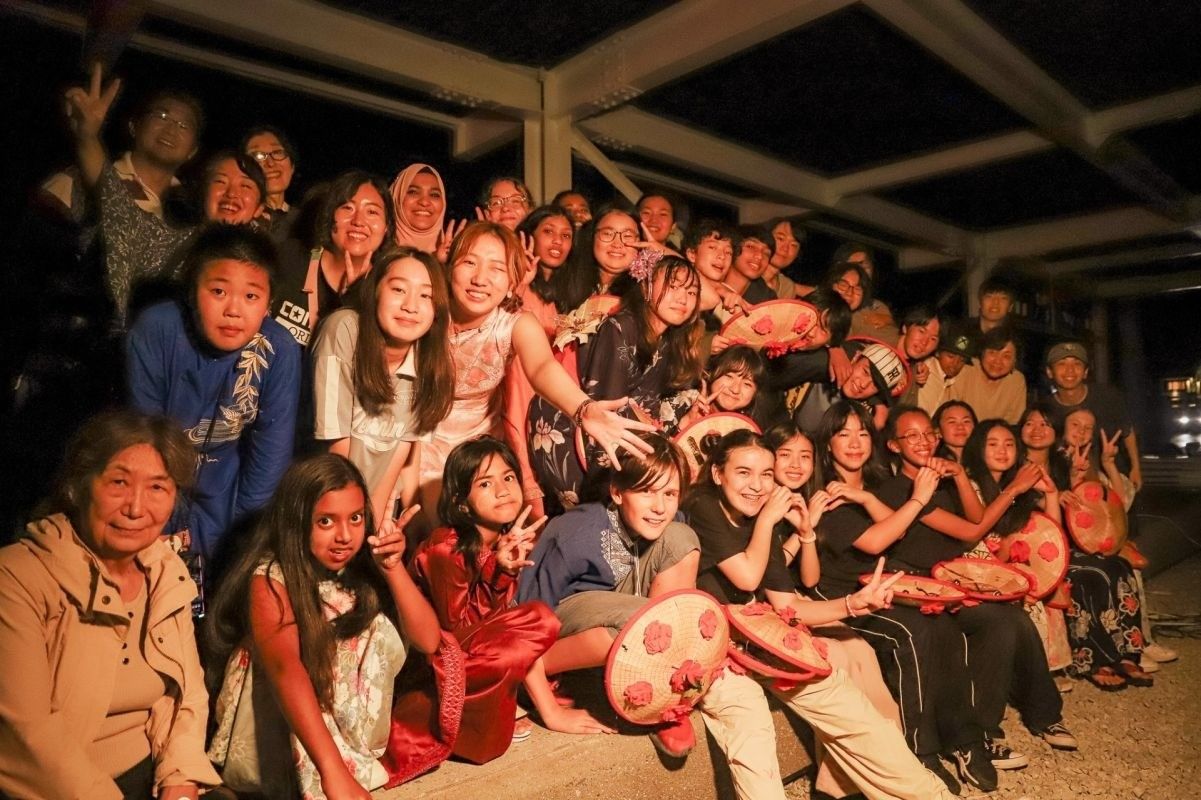
What we do
Cultivating community through “exploration” and “expression”
We continue to create a space where people of refugee backgrounds and the local community can interact through “exploration” and “expression”, tackling international issues together.
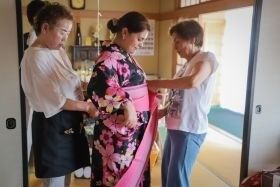
Organize workshops and events on refugee inclusion in various regions of Japan
Every summer, we organize festivals and research workshops inviting families with refugee backgrounds. Through Japanese culture and experiencing expressions using the Japanese language (such as haiku and plays) and other interactive events, it creates a base for the people of the local communities to address issues regarding refugees. We also encourage refugee families to pursue themselves positively in Japanese society.
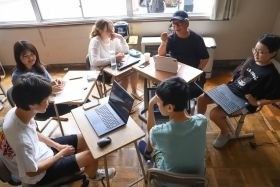
Support for studying overseas for children of refugee backgrounds
We are trying to arrange the participation of high schoolers of refugee backgrounds to participate in the New York study abroad program targeted for high schoolers nationwide every spring. Obtaining a visa is particularly challenging, and it requires collaboration with domestic and international institutions.
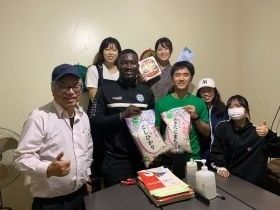
Exchange of ideas and collaboration with international refugee support networks
In January 2024, we visited Uganda, the largest refugee-hosting country in Africa, to visit organizations active in refugee support activities, such as Artolution and Soccer Without Borders, and engage in discussions for mutual collaboration in the future. With Artolution, an organization that conducts social inclusion activities through art and mental health care, we organized an online collaborative event at the international festival in the summer.
Pledge
Japanese Language Support for Refugees: Enhancing Integration and Understanding in Japan
Welcome Japan's Japanese language education Sub Working Group (within Education Working Group) hereby pledge to initiate comprehensive programs aimed at providing Japanese language support to refugees in Japan. This initiative is guided by the best practices observed in other nations and is designed to create a holistic approach that benefits both refugees and host communities within Japan. Inspired by global best practices, our programs are designed to integrate refugees into Japanese society, fostering mutual understanding and support. Its efforts will span across Japan, with a focus on reaching refugees in both urban and rural areas, recognizing the unique needs and opportunities in each setting. The programs are influenced by the broader goals of the International Baccalaureate (IB) education system, which emphasizes global citizenship and the development of a comprehensive worldview. We believe in fostering communities that are inclusive and view global issues from a shared perspective. Rural areas are seen as pivotal in promoting the coexistence and inclusivity of refugees and migrants. Empowering Refugees: Through these language programs, we anticipate empowering thousands of refugees, enabling them to navigate and contribute to Japanese society effectively. The initiative aims to bridge cultural divides, facilitating better integration and understanding between refugees and local communities. This pledge represents our dedication to enhancing the lives of refugees in Japan through language education. By providing Japanese language support, we aim to not only assist in their immediate adaptation but also contribute to their long-term integration and success in Japan. We are committed to building inclusive communities where diversity is embraced and every individual is given the opportunity to thrive. 1. Host an annual international exchange event for refugee children in Japan, aiming to have 100 refugee families residing in Japan participate by 2027. 2. Ensure that 5 refugee children living in Japan have the opportunity to study abroad by 2027, facilitating their access to overseas education. 3. Create opportunities for 20 children from around the world to visit refugee camps in Africa and the Middle East by 2027, enabling international exchange and the implementation of educational programs.


